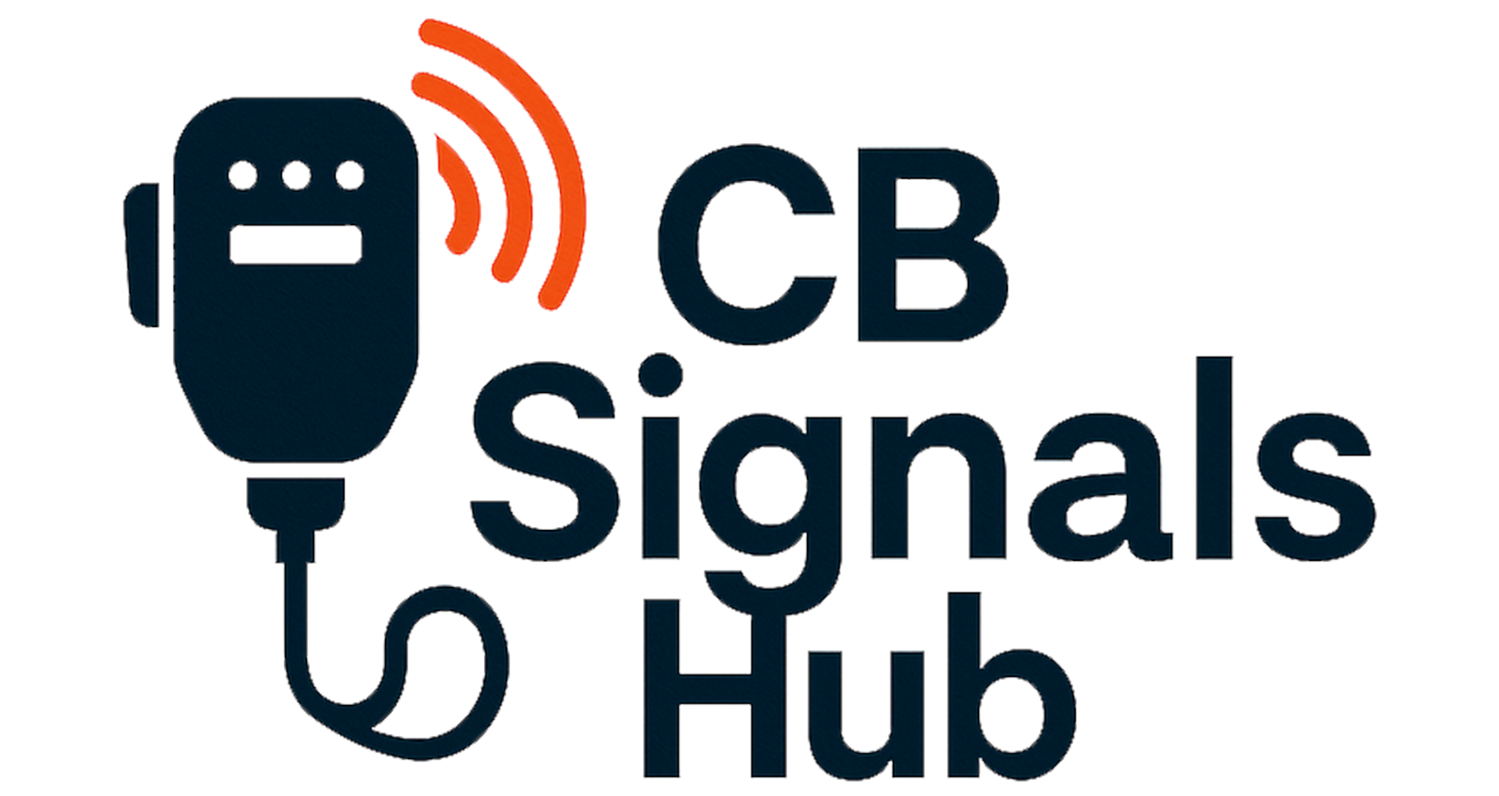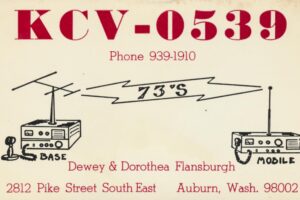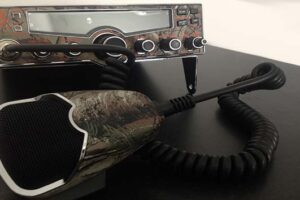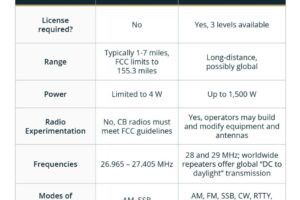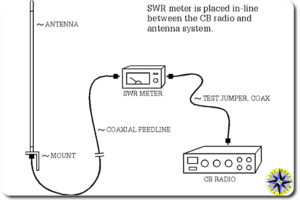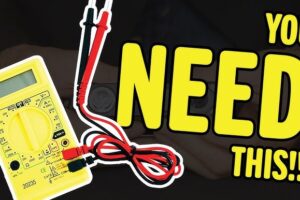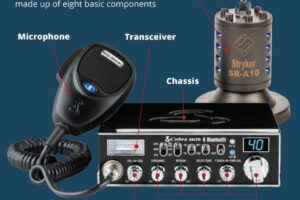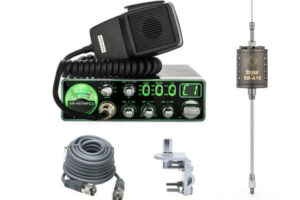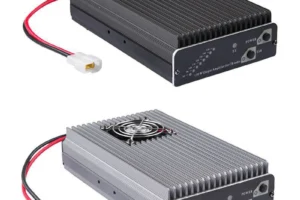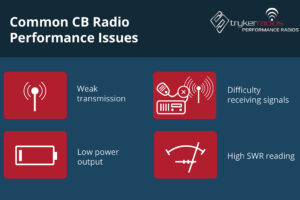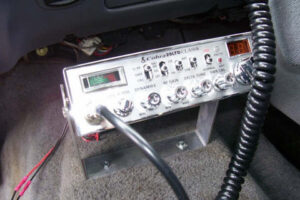Cb Radio Qsl: Connect, Communicate, Confirm Your Contacts
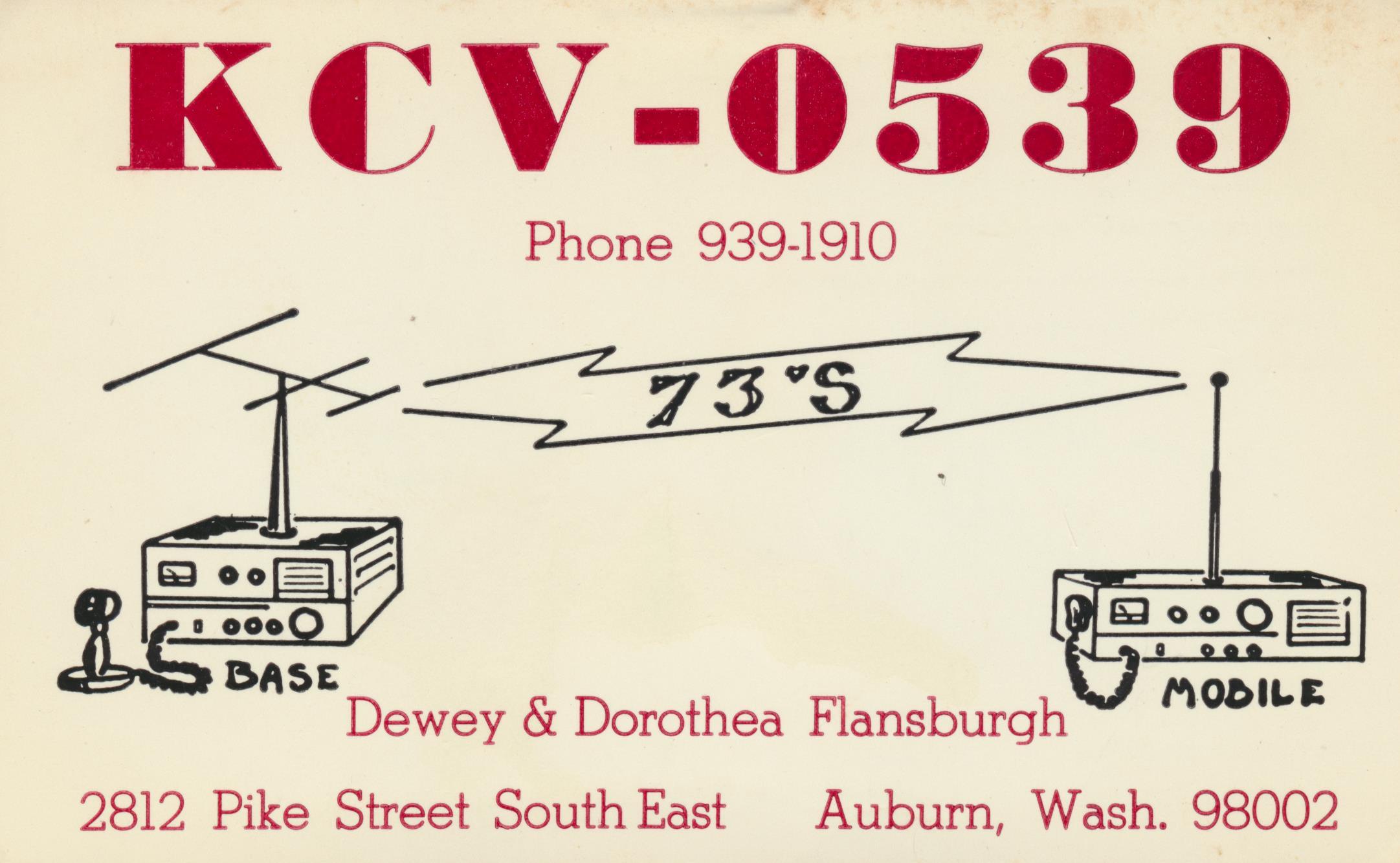
CB Radio QSL cards are a fascinating part of radio communication. They offer a unique way to confirm and remember radio contacts.
These cards are more than just paper. They carry history, culture, and personal connection. Collecting QSL cards is a hobby enjoyed by many CB radio enthusiasts. Each card tells a story of a conversation that crossed miles. They are proof of the reach and power of CB radio waves.
Whether you are new to the hobby or a seasoned collector, understanding QSL cards can enhance your CB radio experience. So, let’s dive into the world of CB Radio QSL cards and explore their significance and charm.

Credit: www.printedmatter.org
Introduction To Cb Radio Qsl
CB Radio QSL cards have a long and fascinating history. These cards serve as proof of a conversation between two CB radio operators. They are a physical record of a successful communication. Let’s delve into the history of CB radio and the purpose of QSL cards.
History Of Cb Radio
CB radios, also known as Citizens Band radios, started in the 1940s. The Federal Communications Commission (FCC) created the CB radio service. It allowed individuals to use short-distance radio communication. Initially, it was used by small businesses and truck drivers.
During the 1970s, CB radios gained popularity among the general public. People used them for personal communication. They became a cultural icon, even appearing in movies and songs. Despite modern technology, CB radios remain popular today. They offer a simple and reliable way to communicate.
Purpose Of Qsl Cards
QSL cards are confirmation cards exchanged by CB radio operators. The term “QSL” comes from radio jargon. It means “I confirm receipt of your message.” These cards serve multiple purposes.
First, they act as proof of communication. Operators exchange these cards to confirm they talked. Second, they serve as a collectible item. Many hobbyists collect QSL cards from around the world. Each card represents a unique communication.
Lastly, QSL cards foster a sense of community. They help operators connect and build relationships. Sharing these cards creates a bond among radio enthusiasts. Each card tells a story of a conversation made across the airwaves.
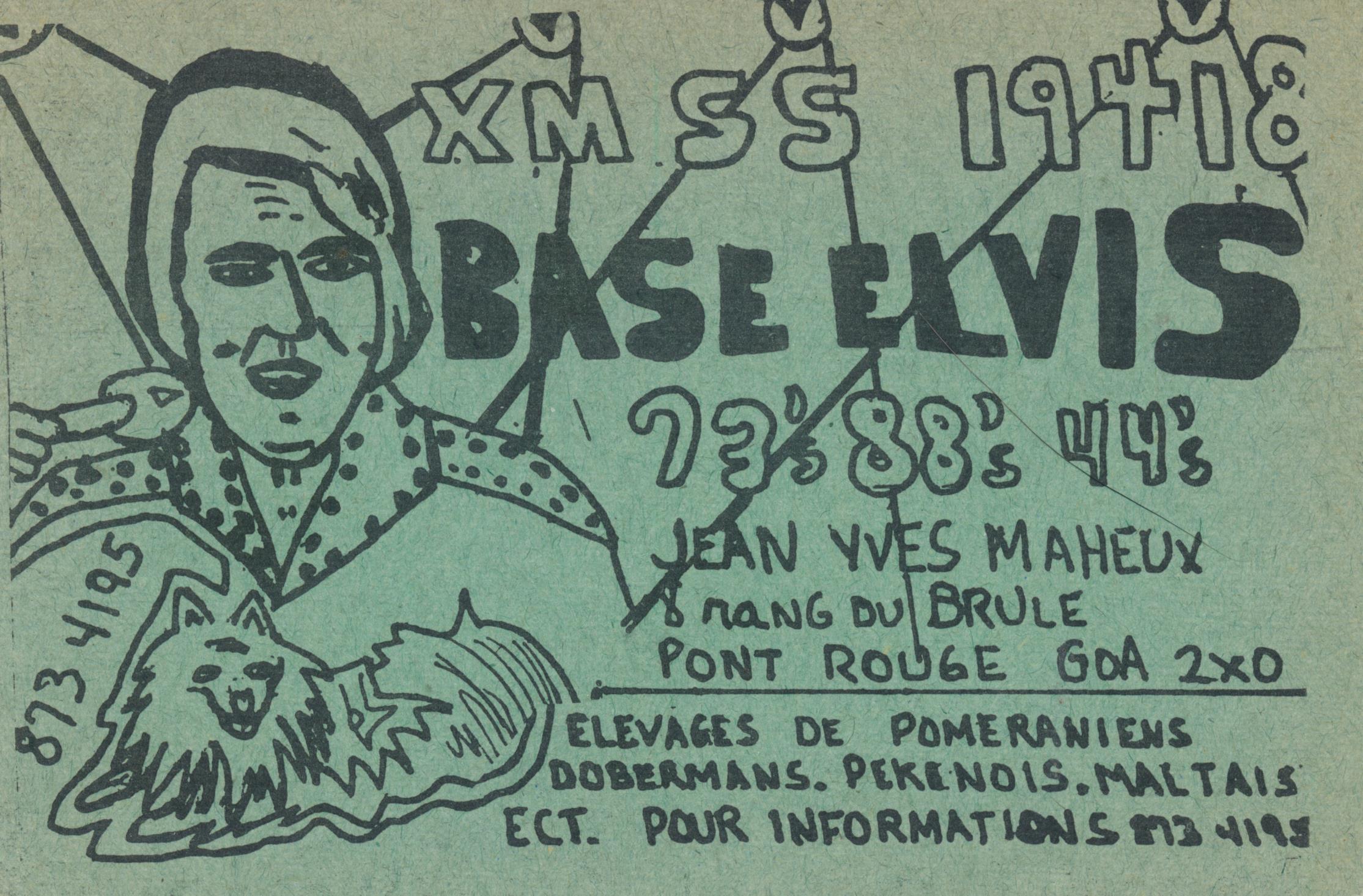
Credit: flashbak.com
Importance Of Qsl Cards
QSL cards are a vital part of CB radio communication. They serve as proof of contact between operators. These cards help verify successful transmissions. They are cherished by enthusiasts. They offer a tangible record of connections.
QSL cards hold sentimental value. They represent the history of radio communication. Collectors and hobbyists treasure them. They are often displayed with pride. They symbolize the friendships made over the airwaves.
Confirming Contacts
QSL cards confirm that a radio contact was made. This verification is crucial. It provides evidence of the communication. It helps track successful exchanges. Operators use these cards to log their contacts.
Confirmation builds credibility. It shows reliability in communication skills. It is especially important in contests. QSL cards can be used to claim awards. They offer proof of participation and success.
Building Relationships
QSL cards foster relationships between operators. They create a sense of community. Sharing these cards strengthens bonds. It promotes camaraderie among enthusiasts.
Each card represents a connection. It tells a story of the communication. It often includes personal messages. These messages add a personal touch. They make the interaction memorable.
Trading QSL cards is a tradition. It is a gesture of goodwill. It shows respect and appreciation. It brings operators closer together. It builds lasting friendships.
Designing Your Qsl Card
Create a unique QSL card for your CB radio. Reflect your personality with custom designs and clear contact details. Make connections memorable and enjoyable.
Designing a QSL card for your CB radio setup is a fun and creative process. Your QSL card serves as a postcard to confirm a radio contact. It’s like a business card that also tells a story about you and your radio hobby. Let’s dive into the key elements that you should consider when designing your QSL card.Essential Information
Your QSL card needs to have certain pieces of information to be useful. First, include your call sign. This is your unique identifier on the airwaves. Next, add your name and location. This helps the recipient know exactly where the signal came from. Don’t forget the date and time of contact. Accurate logs are vital for both personal records and for any awards you may be pursuing. Lastly, mention the frequency and mode of communication. This tells the other party how the contact was made.Creative Elements
While the essential information is crucial, the creative elements make your card memorable. Consider adding a photo or graphic. This could be a picture of your radio setup, a scenic view of your hometown, or even a custom illustration. Colors matter. Use a color scheme that reflects your personality or the theme of your radio activities. Typography can also set the tone. Pick fonts that are easy to read but also interesting. Avoid overly decorative fonts that can make the information hard to read. Think about the layout. Balance the essential information with the creative elements to make sure the card is both functional and visually appealing. What story does your QSL card tell about you? Your card is more than just a confirmation of contact; it’s a reflection of your passion and creativity. Designing it well can make a lasting impression on fellow radio enthusiasts.Exchanging Qsl Cards
Exchanging QSL cards is a cherished tradition among CB radio enthusiasts. These cards serve as a physical confirmation of a radio contact between two operators. They provide a tangible record of communication and foster connections across distances. Whether you prefer digital or physical QSL cards, the process of exchanging them enhances the CB radio experience.
Best Practices
To ensure a smooth exchange, keep your QSL cards simple and clear. Include essential information such as your call sign, location, and contact details. Personalize each card with a short message or note. This adds a personal touch and makes the card more memorable.
Respond to QSL card requests promptly. Timely responses show respect and maintain good relationships within the CB radio community. Also, store received cards in a safe and organized manner. This helps you keep track of your contacts and appreciate the history of your communications.
Digital Vs. Physical Cards
Digital QSL cards offer convenience and speed. They can be sent and received instantly through email or specialized QSL card websites. Digital cards are eco-friendly and reduce the need for postage. They also allow for easy storage and organization on your computer or cloud service.
Physical QSL cards hold a special charm. They provide a tactile experience that digital cards cannot match. Collecting physical cards can be a rewarding hobby. Each card tells a unique story and serves as a memento of your radio contacts. Consider maintaining a balance between digital and physical cards to enjoy the benefits of both.
Collecting Qsl Cards
Collecting QSL cards is a rewarding hobby for CB radio enthusiasts. These cards are proof of communication between two operators. They often feature unique designs, making each card special. Collectors cherish these cards as memories of their radio contacts.
Organizing your collection can make your hobby more enjoyable. Displaying your cards can also add a personal touch to your space.
Organizing Your Collection
Start by sorting your QSL cards. You can organize them by date, location, or design. Use binders with clear sleeves to keep them safe. Label each section for easy access. A well-organized collection helps you find specific cards quickly.
Consider using digital tools. You can create a database to track your collection. This way, you can access information about each card without handling them. It reduces wear and tear on the physical cards.
Displaying Your Cards
Display your QSL cards to share your hobby with others. Frames and shadow boxes are great options. They protect your cards while showcasing them. Arrange cards by themes or colors for visual appeal.
Wall-mounted displays save space and make your collection a focal point. Rotating your cards regularly keeps the display fresh. It also prevents damage from prolonged exposure to light.
Displaying your collection can inspire others to start collecting. It also serves as a conversation starter for visitors. Enjoy sharing your passion with those around you.
Qsl Card Etiquette
QSL cards are an important part of CB radio culture. They help confirm and document radio contacts. Understanding QSL card etiquette ensures positive interactions with fellow radio enthusiasts. Let’s explore some key aspects of QSL card etiquette.
Timely Responses
Responding to QSL cards promptly is crucial. A timely reply shows respect and appreciation. It keeps the exchange process smooth and efficient. Aim to reply within a week of receiving a QSL card. This practice enhances your reputation in the CB radio community.
Personalized Messages
Adding a personal touch to your QSL card can make a big difference. A personalized message shows that you value the contact. Mention specific details from your conversation. This practice makes your card stand out. It strengthens the bond between you and the other operator.
Special Qsl Events
Special QSL events are an exciting aspect of the CB radio community. These events bring enthusiasts together, creating unique opportunities to collect and exchange QSL cards. Let’s dive into some of the highlights of these events.
Contests And Awards
Many CB radio clubs host contests throughout the year. These contests often challenge operators to make as many contacts as possible within a specific time frame. Winning these contests can earn you special QSL cards and awards.
Imagine the thrill of participating in a DX (long distance) contest. You could be making contact with operators from all over the world. Each contact means another QSL card to add to your collection.
These contests are not just about winning. They also provide a fantastic way to improve your operating skills. You will learn to communicate more efficiently and effectively. Are you ready to test your skills in the next contest?
Commemorative Cards
Commemorative cards are another exciting aspect of special QSL events. These cards are often issued to mark significant anniversaries or events in the CB radio community. They are unique and highly collectible.
For example, a club might issue a commemorative card for its 50th anniversary. These cards often feature special designs and are highly prized by collectors. Imagine the pride of having such a card in your collection.
Participating in events that offer commemorative cards can also be a great way to connect with other enthusiasts. It’s a chance to share stories and experiences. Have you ever participated in an event that offered commemorative cards?
Special QSL events add a layer of excitement to the hobby of CB radio. They offer opportunities to connect, compete, and collect. So why not join in the fun and see what unique QSL cards you can collect?
Future Of Qsl Cards
The future of QSL cards in CB radio is exciting and uncertain. As technology evolves, the traditional hobby of exchanging QSL cards faces change. This change brings both challenges and opportunities for CB radio enthusiasts.
Technological Advances
Modern technology has impacted how we communicate. Digital QSL cards are now common. These electronic cards are easy to send and receive. They save time and resources. Enthusiasts can log contacts online. Websites and apps help track exchanges.
Software tools can design digital QSL cards. This allows for creativity and customization. High-speed internet makes sharing cards fast and simple. The digital shift offers convenience and efficiency. It also reduces the need for physical cards and postage.
Maintaining Traditions
Many still prefer traditional QSL cards. Physical cards carry sentimental value. They are tangible memories of past contacts. Collecting QSL cards is a cherished hobby for some. It connects them to the history of CB radio.
Traditional cards often feature unique designs. They can showcase personal achievements. Swapping these cards strengthens the CB radio community. It fosters a sense of belonging and camaraderie. Keeping this tradition alive is important for many enthusiasts.
The future of QSL cards will likely blend old and new. Embracing technology while honoring tradition. This balance will ensure the hobby’s longevity and appeal.

Credit: www.ebay.com
Frequently Asked Questions
What Is A Cb Radio Qsl?
A CB Radio QSL is a confirmation card exchanged between CB radio operators. It verifies a successful communication.
Why Use Qsl Cards In Cb Radio?
QSL cards are used to confirm and acknowledge successful radio contacts. They serve as a keepsake and proof of communication.
How Do I Design A Qsl Card?
Design your QSL card with your call sign, contact details, and a personal message. Include graphic elements for visual appeal.
Can I Send Digital Qsl Cards?
Yes, digital QSL cards are becoming popular. They can be sent via email or online platforms.
Conclusion
Cb Radio QSL cards create unique connections among radio enthusiasts. They serve as tangible memories. These cards add a personal touch to the radio community. Collecting and exchanging them can be fun and rewarding. So, keep sharing and collecting QSL cards.
They help you build lasting friendships and memories in the CB radio world. Keep your radio conversations alive and vibrant. Happy QSL collecting!
